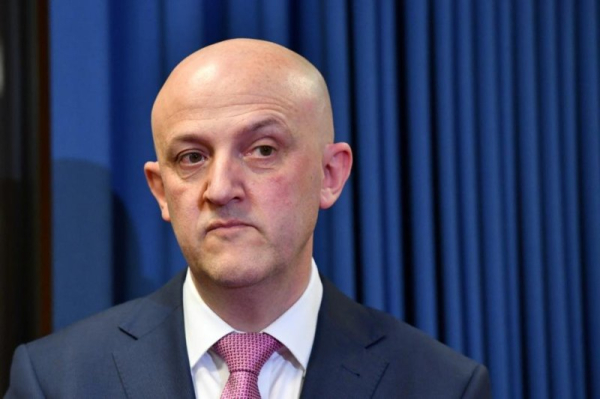
Director-general of the Australian Security Intelligence Organization Mike Burgess said the country had raised its terror threat level to “probable” amid an increased threat of domestic terror. File Photo by Darren England/EPA-EFE
Australia on Monday raised its terror threat alert level to “probable,” citing an increased threat of domestic terrorism due to radicalization, mostly online.
The government’s website said the change from “possible” to “probable” indicated a greater than 50% chance of an “onshore attack or attack planning” in the next 12 months. Advertisement
“Australia’s security landscape has entered a vulnerable period and is being challenged by new threats with concerning trajectories,” it said in a statement.
“Our landscape reflects the social and political environment in which we live — social cohesion is lower, and trust in governments and democratic processes globally are eroding.”
It added the Australian Security Intelligence organization had observed emerging domestic terror actors “increasingly driven by socio-political issues, intersecting with personal grievances” as well as a rise in extremism “fueled by conspiracy theories and anti-authority ideologies.”
ASIO director-general Mike Burgess said in a statement that the country’s safety environment is now “more volatile and unpredictable” and that the chance of violent extremists taking advantage of that uncertainty has increased.
“This trend increased during COVID, gained further momentum after the terrorist attacks in Israel, and accelerated during Israel’s military response,” Burgess said. Advertisement
The government said social media has been a key driver for the current safety volatility, acting “as a way and platform” for the radicalization of individuals by extremist groups. It said the platform has allowed violent ideologies to amplify their messages.
“More Australians are being radicalized and being radicalized more quickly,” Burgess said. “More Australians are willing to use violence to advance their cause. Politically motivated violence now joins espionage and foreign interference as our principal security concerns.”
Burgess stressed, though, that the threat level increase did not mean that he had any information about possible attack plans or expectations of a coming attack.
Authorities said those risks could include something low-tech like knives or improvised weapons, likely involving young people who had been radicalized.